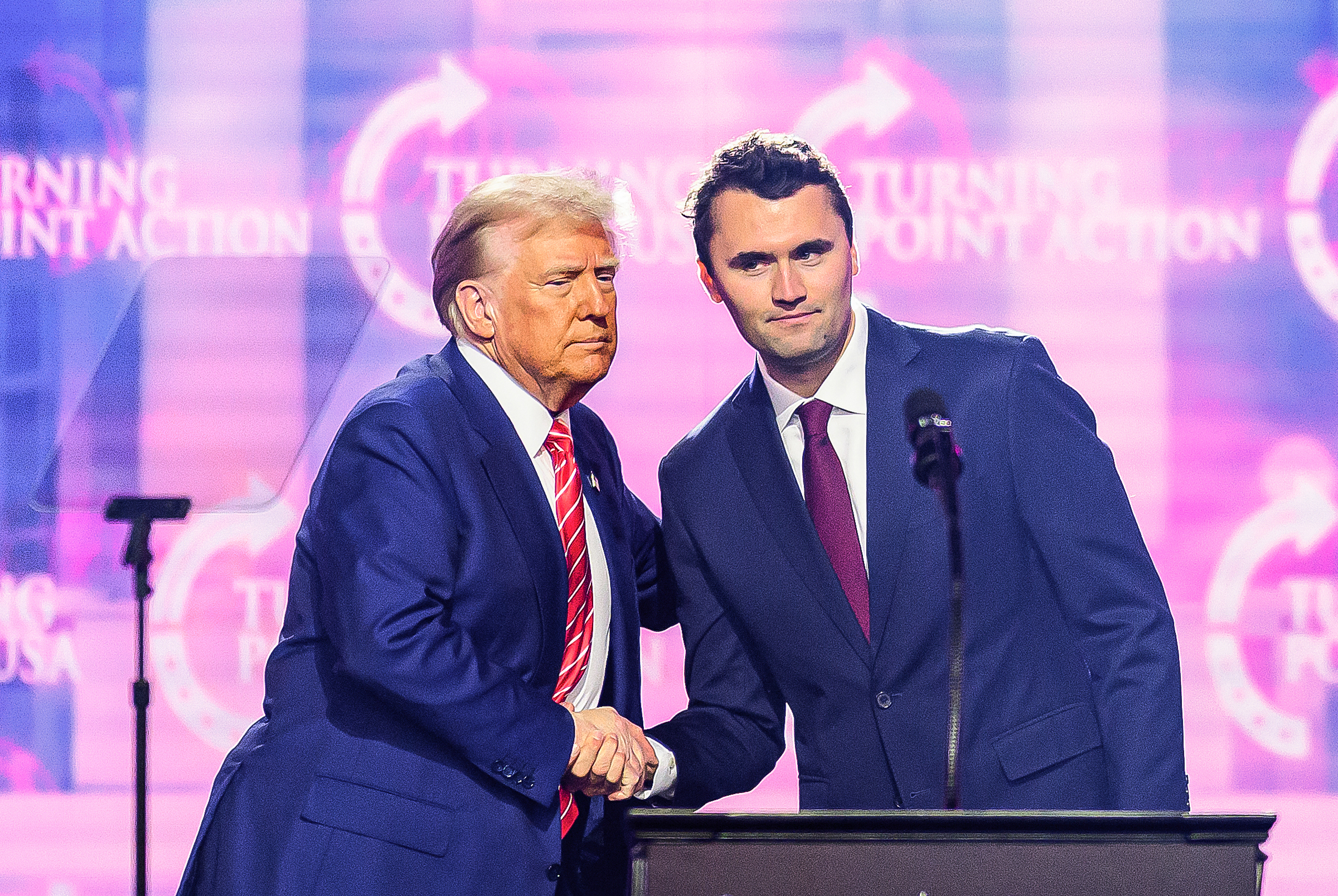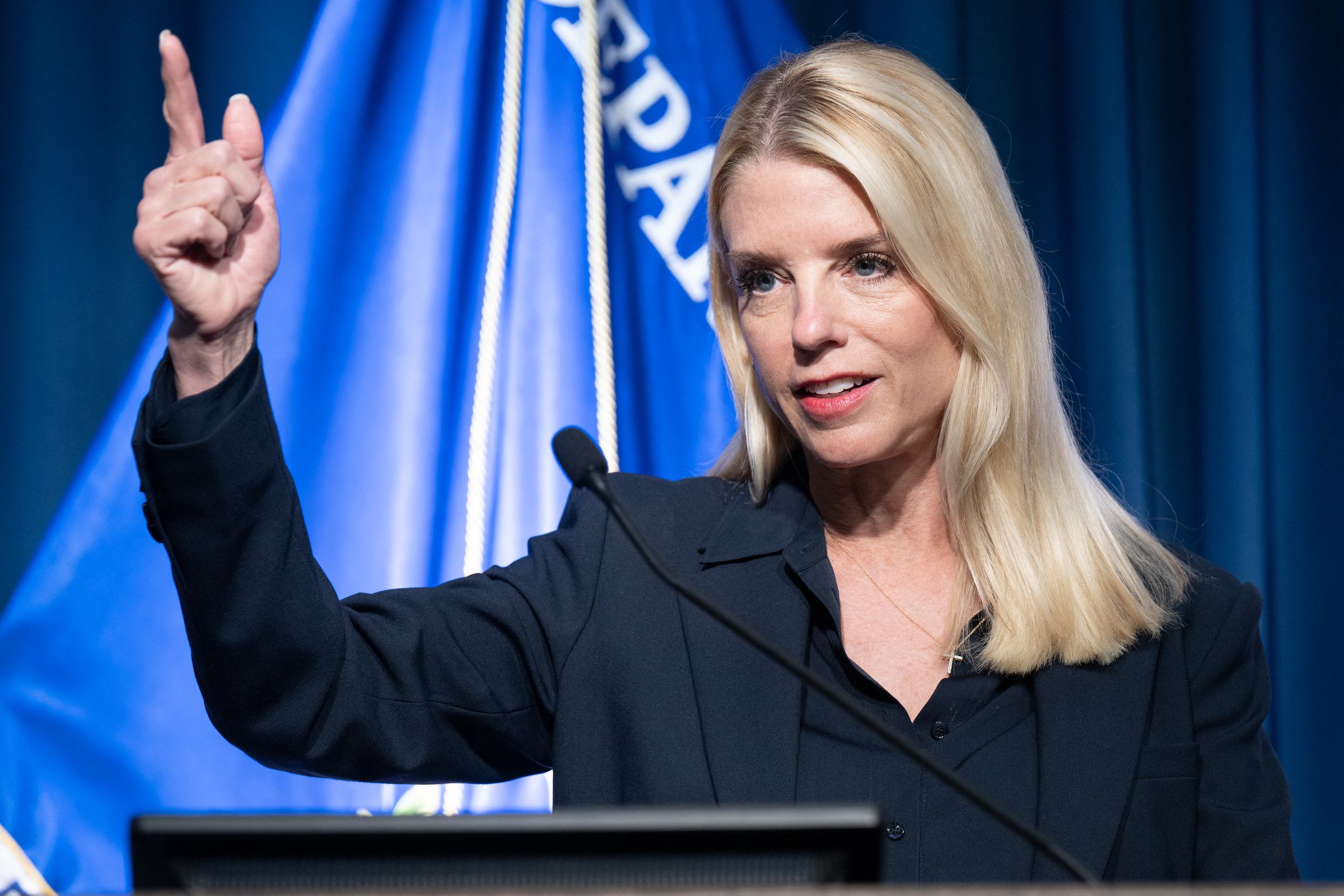Charlie Kirk, the 31-year-old conservative activist, was shot and killed while speaking at Utah Valley University in Utah on 10/9. He co-founded the conservative youth organization Turning Point USA and was a key ally of President Donald Trump.
Kirk's assassination immediately sent shockwaves not only through American politics but also through the Make America Great Again (MAGA) movement, President Trump's staunch support base. But instead of fostering unity, the incident exposed strategic and ideological differences within MAGA factions.
Some of President Trump's aides and allies want to crack down on what they call "hate speech," which they believe fuels political violence and motivated the gunman who targeted Kirk. Others in the MAGA movement emphasize protecting First Amendment free speech rights, which they consider inviolable.
 |
President Donald Trump (left) and conservative activist Charlie Kirk in Phoenix, Arizona in 12/2024. Photo: AFP |
President Donald Trump (left) and conservative activist Charlie Kirk in Phoenix, Arizona in 12/2024. Photo: AFP
On the evening of 10/9, President Trump declared that Kirk's murder was not an isolated act of violence but was connected to the "radical left." He vowed to "find everyone who contributed to this crime and other acts of political violence."
This message was quickly echoed by many allies. They saw it as a political opportunity to reinforce the message that "America is under attack from within" and to advance an agenda against the left wing associated with the Democratic Party. But this effort sparked debate over whether MAGA should focus on hateful rhetoric online or target organizations accused of links to political violence.
Attorney General Pam Bondi argued for a crackdown on extreme rhetoric, which she considers a contributing factor to violence. On 15/9, she announced that the Justice Department would prosecute anyone using hateful language targeting others.
"There's free speech, and then there's hate speech. That kind of language has no place in our society, especially now, especially after what happened to Charlie," she said.
Bondi's comments immediately drew a backlash from conservatives, who viewed them as contrary to the beliefs in free speech and the right to debate that Kirk championed.
"The First Amendment protects free speech," Republican Senator Ted Cruz argued. "It protects even hateful, disgusting, horrible speech. What does that mean? It means you can't be prosecuted for your words, no matter how poisonous, extreme, or wrong they are."
Some cited Kirk's 2024 writing: "America has no legal concept of 'hate speech.' There are ugly, unpleasant, and toxic words. But all are protected by the First Amendment. Keep America free."
"Someone explain to Bondi what 'hate speech' protected by the First Amendment means. She should know this," conservative commentator Brit Hume wrote on X.
Other Trump administration officials also rejected the idea of online content control. "The Supreme Court has made clear for decades that the First Amendment and our free speech tradition protect virtually all speech," said Brendan Carr, chairman of the Federal Communications Commission.
On 16/9, Bondi somewhat revised her stance, saying she was targeting only speech that could incite violence, which the First Amendment does not protect.
Meanwhile, other MAGA members urged the federal government to target civil society organizations and left-wing foundations accused of funding violence against Republicans and law enforcement.
Vice President JD Vance suggested the Ford Foundation and the Open Society Foundations, a non-profit run by major Democratic donor George Soros, as initial targets.
Deputy White House Chief of Staff Stephen Miller said Vance was referring to "a whole network of organizations" behind left-wing extremist activities. The federal government plans to ask the Justice Department and the Department of Homeland Security to address these groups.
Steve Bannon, a former close advisor to Trump, said the federal government was considering several measures, including designating "Antifa" as a domestic terrorist organization.
Antifa is a term used by the American right wing to refer to far-left groups accused of inciting violence during protests. During his first term, Trump threatened to designate Antifa as a "domestic terrorist organization" but did not follow through.
"The most important thing is to expand the investigation, not just treat this as an isolated murder but as a larger conspiracy. If you're ready to confront, confront it to the end," Bannon said.
 |
US Attorney General Pam Bondi speaks at the White House on 15/7. Photo: AFP |
US Attorney General Pam Bondi speaks at the White House on 15/7. Photo: AFP
This difference in approach is creating a dilemma for the White House as it formulates its response to the assassination. Observers say that cracking down on speech could alienate voters who value individual liberty, while targeting organizations could be seen as "political retaliation."
A White House official said the administration wasn't limiting its options at this time. "There are a lot of options that could be considered," the official said.
By 17/9, President Trump made a decision, leaning towards targeting Antifa. "I am pleased to announce that I will be designating Antifa, the extremely sick and dangerous left-wing extremist disaster, as a major terrorist organization. I am also unequivocally calling for a full investigation, under the highest legal standards and procedures, of the individuals and/or organizations that fund Antifa," the President posted on Truth Social.
Nhu Tam (According to Politico, Reuters, TIME)












